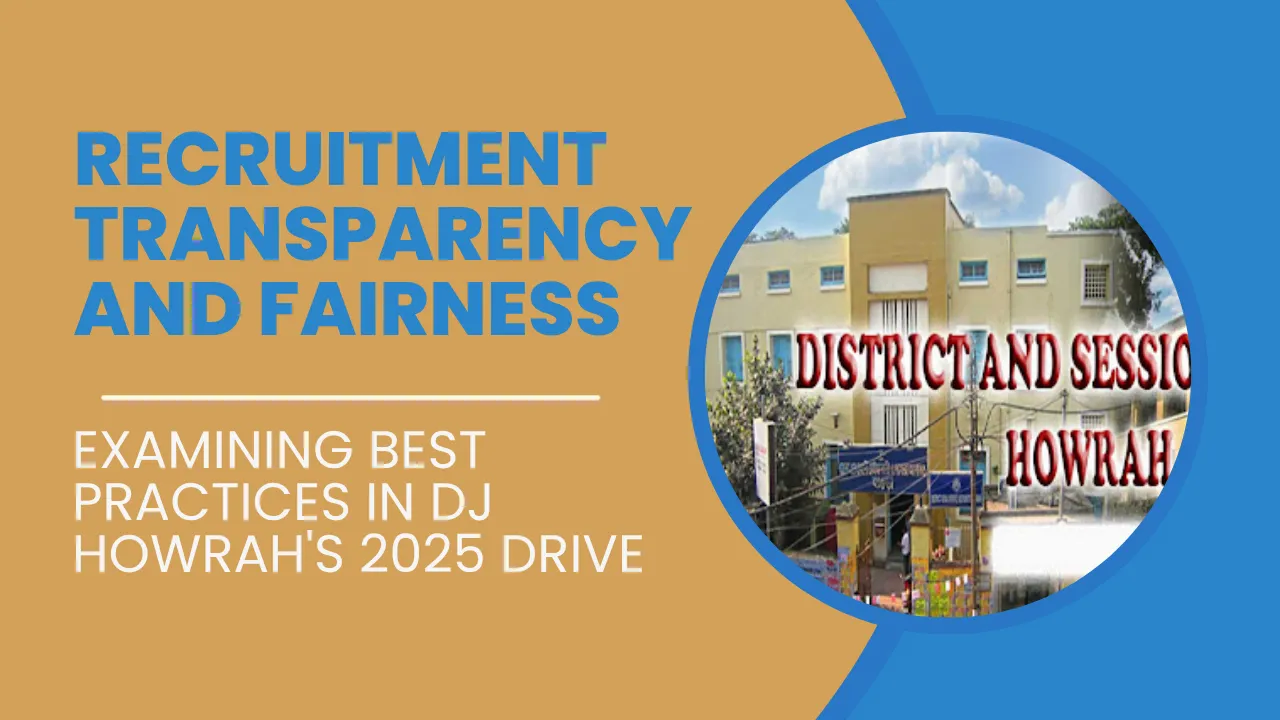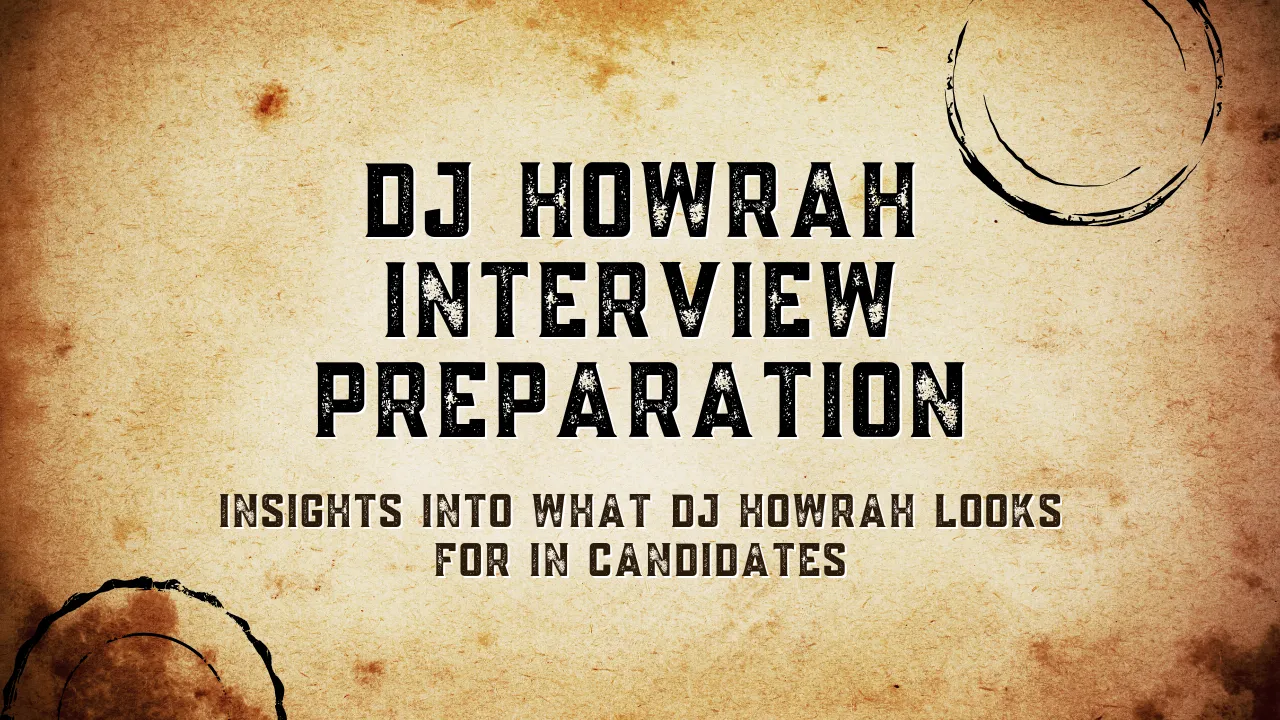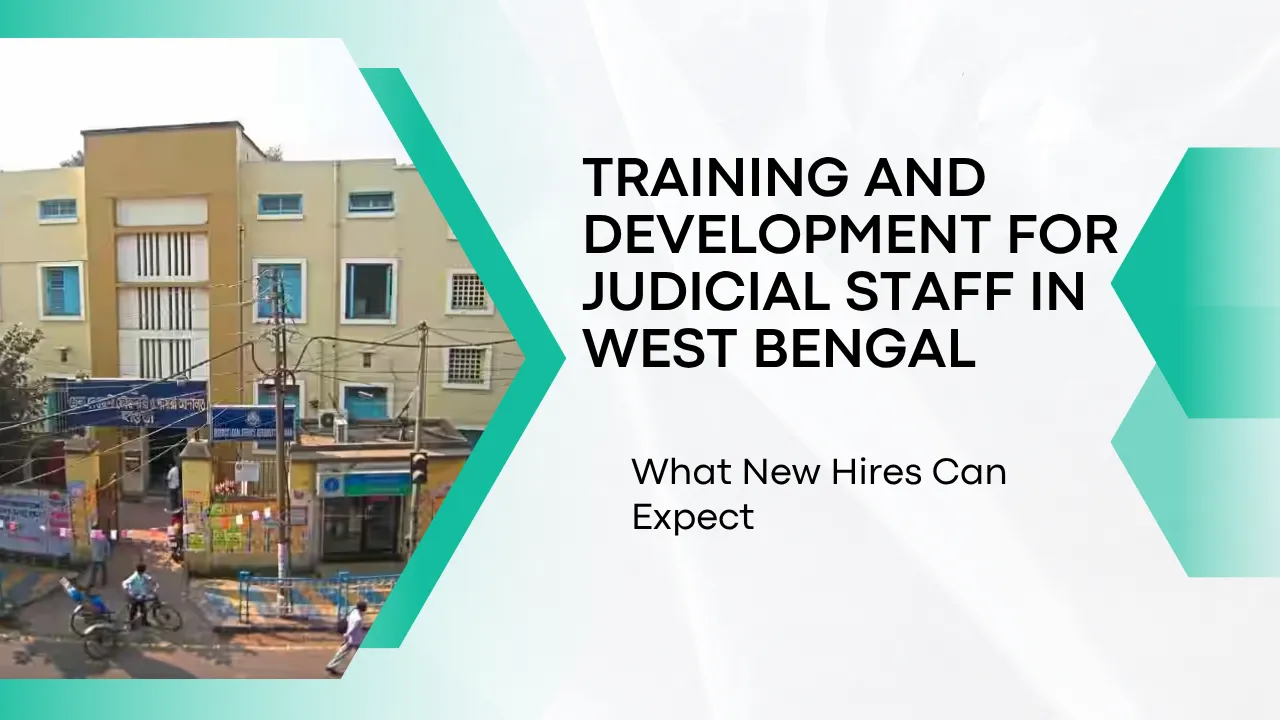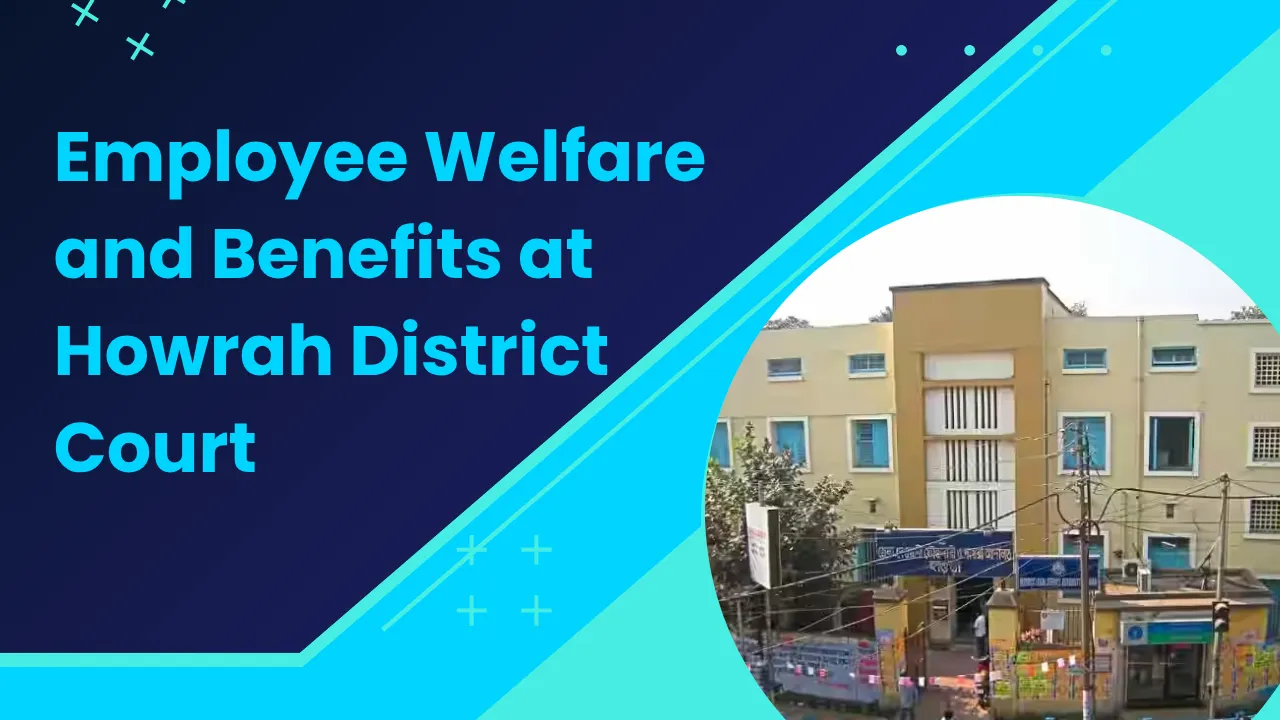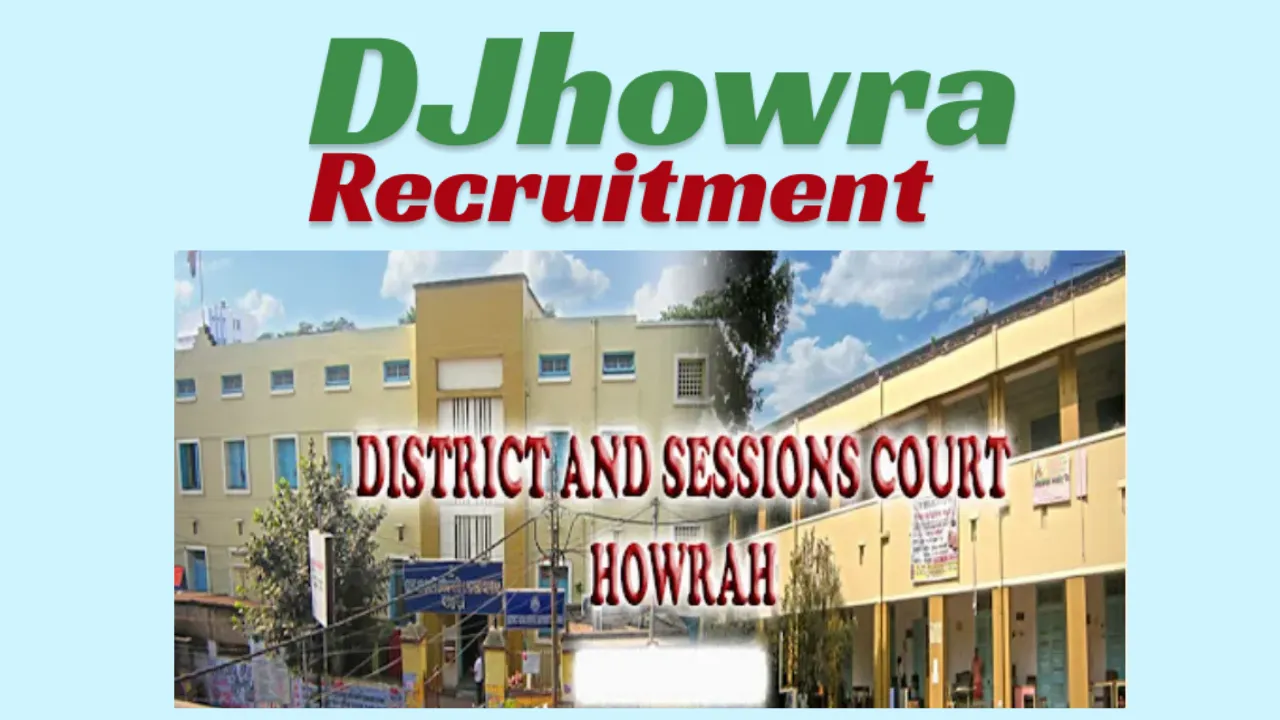DJ Howrah Recruitment 2025 Syllabus: In 2025, the District Judge’s Court in Howrah will conduct recruitment for several positions including Lower Division Clerk (LDC), Upper Division Clerk (UDC), Stenographer, Process Server, and Group D posts. For aspiring candidates, understanding the official DJ Howrah Recruitment 2025 Syllabus is the first step toward focused and effective preparation.
With competition expected to be intense, having a clear grasp of the exam pattern, subject areas, and skill requirements can make a significant difference in your selection prospects.
DJ Howrah Recruitment 2025 Syllabus Overview
The DJ Howrah Recruitment 2025 Syllabus covers multiple evaluation stages: a written examination, a skill test for specific posts, and an interview round. The written test checks your proficiency in general knowledge, current affairs, English, math, logic, and Bengali. If you’re applying for technical roles like stenographer or clerk, additional tests will measure your typing speed, computer handling skills, or shorthand abilities. Each section is designed to assess the candidate’s readiness for a judicial administrative environment, ensuring fairness and practical relevance.
Overview Table: DJ Howrah Recruitment 2025 Syllabus
| Stage | Topics Included |
| Written Examination | GK, Current Affairs, General English, Arithmetic, Logical Reasoning, Bengali Language |
| Skill Test | Typing, Computer Proficiency (LDC/UDC), Shorthand & Transcription (Stenographer) |
| Interview | Personality, Communication, Judicial Awareness, Ethical Reasoning, Bilingual Proficiency |
Written Examination
The written exam is the primary screening tool and is common for most posts. It includes the following subject areas:
General Knowledge & Current Affairs
- Covers Indian history, geography, Indian Constitution, economy, and general science.
- Current affairs of the last 6–12 months, especially related to government schemes, sports, awards, judiciary, and major national events.
General English
- Topics include basic grammar (tenses, articles, voice, narration), sentence correction, vocabulary (synonyms, antonyms, idioms), and reading comprehension.
- For higher posts, letter writing, report writing, and précis writing may be included.
Arithmetic/Quantitative Aptitude
- Fundamental arithmetic: number systems, simplification, percentages, averages, ratios.
- Word problems: profit-loss, time and work, speed and distance, interest calculations.
- Basic mensuration and data interpretation from tables and graphs.
Logical Reasoning
- Includes both verbal and non-verbal reasoning.
- Common types: number series, analogies, coding-decoding, blood relations, syllogisms, puzzles, mirror images.
Bengali Language
- Grammar and vocabulary of Bengali.
- Translation tasks from English to Bengali and vice versa.
- Paragraph and letter writing in Bengali, covering both formal and informal styles.
Skill Test (Post-Specific)
Candidates who clear the written exam will be called for skill-based assessments according to their applied post.
For Stenographers
- Shorthand Test: Dictation in English or Bengali at 80–100 words per minute.
- Typing Test: Typing speed in English or Bengali must be 30–40 words per minute with accuracy.
- Transcription: A test of converting shorthand notes into typed format within a specified time.
For LDC/UDC
- Typing Speed Test: In English or Bengali.
- Computer Proficiency: Practical test involving MS Word (typing, formatting), Excel (basic formulas, tables), file management, and web usage.
- Writing Skills: Drafting of official notes, letters, and reports may be included.
Interview (Personality Test)
The interview round evaluates soft skills and your overall fit for the position.
- Personal Background: Education, family, interests, and career goals.
- Judicial Awareness: Basic understanding of the Indian judiciary and structure of courts.
- Communication Skills: Ability to express clearly in both Bengali and English.
- Situational Questions: To assess your ethical judgment, logic, and problem-solving attitude.
- Confidence & Composure: Gauging how well you can handle pressure, deal with the public, and represent the judiciary.
Tips to Crack DJ Howrah Recruitment 2025
- Understand the Exam Pattern Thoroughly: Familiarize yourself with subject-wise weightage.
- Follow Current Affairs Regularly: Stay updated with local and national news from reliable sources.
- Practice Typing Daily: Typing tests can be a deal-breaker—maintain speed and accuracy.
- Work on Bengali Proficiency: Many candidates ignore this, but it’s crucial for scoring well.
- Mock Interviews: Prepare with friends or mentors to develop confidence and clarity in responses.
Conclusion
The DJ Howrah Recruitment 2025 Syllabus is detailed, well-balanced, and focused on identifying competent and deserving candidates. Preparing for it requires discipline, smart strategy, and consistent practice. Whether you’re targeting a clerical, stenographer, or Group D post, a strong foundation in the syllabus topics will guide your way to success.
Call to Action: Bookmark this syllabus breakdown and begin your preparation with a dedicated plan today. Share this guide with fellow aspirants, and stay tuned to the official website for updates. Your dream job at Howrah District Court is within reach—start now!
FAQs
1. Is the DJ Howrah Recruitment 2025 Syllabus the same for all posts?
No. While the written exam is common, skill tests vary by role—for example, stenographers face dictation, while LDCs undergo computer testing.
2. What is the typing speed requirement?
For clerks and stenographers, typing speeds of 30–40 words per minute are usually required, depending on the post.
3. Will questions be asked in Bengali too?
Yes. Knowledge of Bengali is essential, and you’ll be tested on translation and writing skills in the language.
4. Is current affairs a major part of the exam?
Yes. Staying updated with national and international news from the last 6–12 months is critical.
5. How should I prepare for the interview?
Be honest, well-informed about the judiciary, confident in your answers, and fluent in both English and Bengali.






